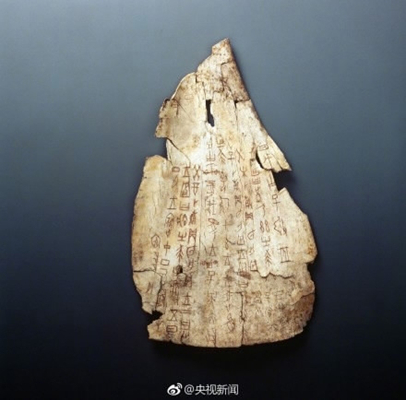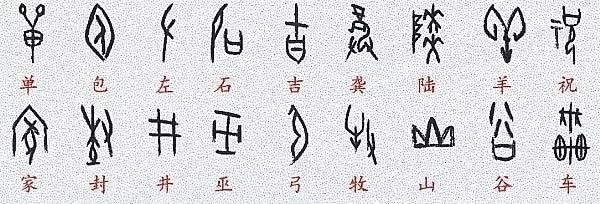China's oracle bone scripts inscribed into world's memory
 0 Comment(s)
0 Comment(s) Print
Print E-mail CGTN, November 25, 2017
E-mail CGTN, November 25, 2017
China's oracle bone scripts, an ancient type of Chinese characters inscribed on animal bones or turtle shells, have successfully entered the UNESCO's Memory of the World Register, according to the Chinese Ministry of Education on Friday.
 |
|
A piece of oracle bone script [Photo/CCTV] |
Launched in 1997, the Memory of the World Register of the UN organization was aimed at preserving and making better use of the aging documents and files that have been dying out from the human history.
So far, China has 11 pieces of documentary files on the list, including the documents of Nanjing Massacre, which recorded the history of 300,000 Chinese victims murdered by the Japanese invaders during World War II and were enlisted in 2015.
|
|
|
Yin Xu, relics of the Shang Dynasty in Anyang City, Henan Province [Photo/Radio of Anyang] |
The oracle bone scripts, originally discovered from relics of the Shang Dynasty (1600 BC – 1046 BC) in Anyang City, Henan Province, is an ancient type of Chinese language used for divination.
It was discovered by epigraphy expert Wang Yirong from the Chinese medical materials he bought, since the animal bones and turtle shells were usually used as medicines in China. Wang was therefore dubbed as the "Father of Oracle Bone Scripts."
The characters inscribed on the bones and shells have contributed greatly to the Chinese civilization, enabling the Chinese culture to be passed on from generation to generation and become the only civilization to last up to the present.
However, in the past 100 years since being discovered, only around 2,000 characters from the oracle bone scripts have been decoded. There are at least 3,000 more remaining to be deciphered.
According to published materials, there are about 150,000 pieces of unearthed oracle bone scripts, and about 100,000 were preserved in the Chinese mainland, 30,000 in Taiwan and the other 20,000 were scattered across the world.
It is expected that by entering the Memory of the World Register, the archaeological study of the ancient characters could be encouraged.
"It is only a new beginning," said Song Zhenhao, director of the Oracle Bone Scripts Study Center of the Chinese Academy of Social Sciences, hoping that the new achievement could inject a vigor into the ancient study.






